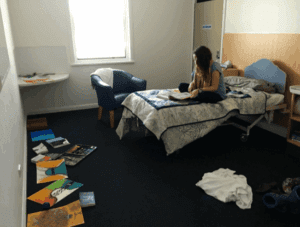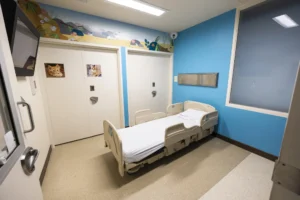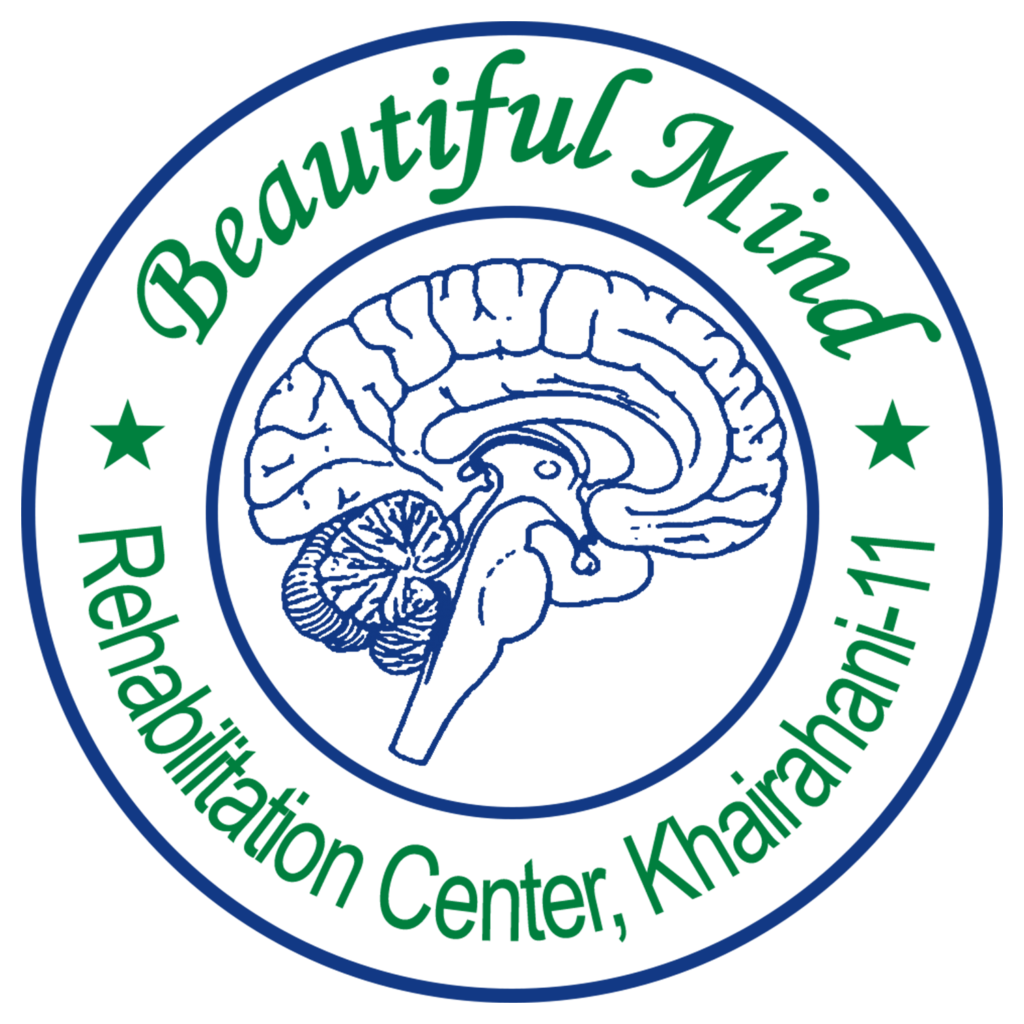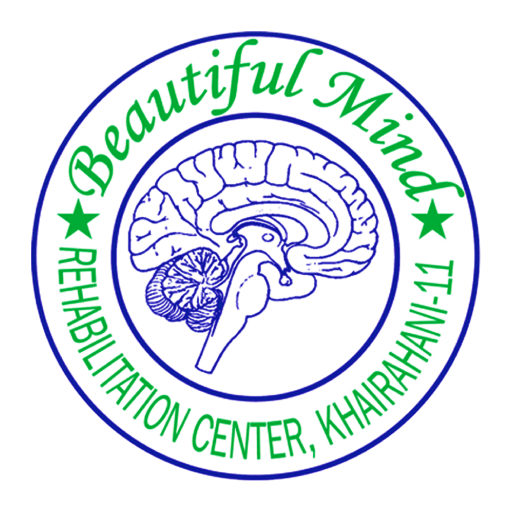Breaking the Stigma: What Really Happens Inside a Mental Hospital in Nepal
By Beautiful Mind Institute of Psychiatry
https://beautifulmind.com.np
Introduction: Time to Talk About It
In Nepal, mental illness still walks in the shadows. Too often, people whisper about “mental hospitals” with fear, misunderstanding, or even shame. But what really goes on inside these facilities? It’s time we pull back the curtain, challenge the myths, and spotlight the real stories of care, healing, and transformation that unfold daily inside psychiatric hospitals in Nepal.
At the Beautiful Mind Institute of Psychiatry in Khaireni-11, Gaidaha, Parsa, Chitwan, we believe mental healthcare is just as important as physical healthcare. This article is a guided tour through what a mental hospital in Nepal really looks and feels like today—because knowledge heals fear.

The Common Misconceptions
Before diving in, let’s bust a few myths that keep stigma alive:
- Myth 1: Mental hospitals are scary and filled with dangerous people.
- Myth 2: Only “crazy” or “mad” people go there.
- Myth 3: If you’re admitted, you lose your rights or freedom.
- Myth 4: People never come out the same (or never come out at all).
These are outdated, harmful assumptions. The truth is very different.
First Things First: Admission is a Step Toward Healing
When a patient arrives at a mental health hospital in Nepal like ours, the first step is a thorough assessment. Trained professionals—psychiatrists, psychologists, and counselors—sit with the patient (and family, if appropriate) to understand their history, current symptoms, and needs.
Admission is not punishment. It’s an opportunity for intensive care when outpatient treatment is not enough. And yes—patients can and do leave after recovery.

Inside the Facility: What Life Really Looks Like
Contrary to the grim depictions in movies, a modern mental hospital is a space of care, structure, safety, and support.
1. Medical Care
- Patients receive psychiatric evaluations.
- Medication (when necessary) is prescribed and monitored.
- Medical check-ups ensure physical health is also addressed.
2. Therapeutic Services
- Psychosocial counseling
- Individual and group therapy
- Cognitive Behavioral Therapy (CBT)
- Trauma-informed therapy
3. Holistic Treatment Approaches
- Yoga and mindfulness practices
- Art therapy
- Music and dance therapy
- Occupational therapy for skill development and reintegration
4. Daily Routine and Environment
- Clean, structured spaces designed for calm and comfort
- Set routines that help patients build predictability and stability
- Group activities, games, physical exercise, and relaxation practices
5. Nutrition and Hygiene
- Balanced meals
- Personal hygiene support
- A focus on self-care and dignity
Who Are the Patients?
Our patients are your neighbors, coworkers, teachers, parents, and even health professionals. They come with diagnoses ranging from:
- Depression
- Anxiety disorders
- Bipolar disorder
- Schizophrenia
- Addiction
- PTSD and trauma
They are not weak. They are resilient humans taking brave steps toward recovery.
Family Involvement: A Crucial Piece
Families are never left in the dark. At Beautiful Mind Institute, we prioritize:
- Psychoeducation for families
- Family counseling sessions
- Caregiver support to prevent burnout
Healing is most sustainable when the home environment is compassionate and informed.
Discharge and Aftercare
Leaving the hospital is not the end. It’s a transition. Our aftercare includes:
- Scheduled follow-ups
- Continued counseling or therapy
- Peer support groups
- Medication management and relapse prevention
We walk with the patient beyond the walls of our facility.
Challenges We Still Face in Nepal
Even with progress, there are hurdles:
- Stigma in society and even within families
- Lack of mental health awareness
- Shortage of trained professionals
- Limited access in rural areas
But change is happening, and you are part of the solution simply by reading and sharing this.
Why Mental Hospitals Matter
- They save lives.
- They restore dignity.
- They provide evidence-based, professional help.
- They are safe spaces for healing.
No one should suffer alone. No one should be shamed for needing help.
What Sets Beautiful Mind Apart?
- 24/7 psychiatric and medical support
- Holistic, trauma-informed care
- Multidisciplinary team (psychiatrists, psychologists, social workers, therapists)
- Affordable and ethical care
- Warm, respectful environment that treats patients with dignity

Final Thoughts: Stigma Ends With Us
Talking about mental illness openly is revolutionary in a culture that still hides it. But the more we talk, the more we normalize, and the more people seek help without shame.
At the Beautiful Mind Institute of Psychiatry, we see every patient as a person, not a diagnosis. We believe recovery is possible. And we’re here to prove that with empathy, expertise, and hope.
Let’s Talk
📍 Address: Khaireni-11, Gaidaha, Parsa, Chitwan, Nepal
🌐 Website: https://beautifulmind.com.np
📞 Contacts:
+977-98550945843 (Hira Ale Magar)
+977-9855094582 (Ansuda Poudel)
+977-9855094584 (Kamal Sharma Bushal)
You are not alone. We’re just one call away.
Share this article. Break the silence. Break the stigma.
🔍 FAQs: Inside Mental Hospitals in Nepal
- What is a mental hospital?
A mental hospital is a medical facility dedicated to diagnosing, treating, and supporting individuals with mental health disorders. - Are mental hospitals in Nepal safe?
Yes, reputable institutions like Beautiful Mind Institute of Psychiatry ensure a safe, secure, and healing environment. - What kinds of patients go to mental hospitals?
People struggling with various mental health issues like depression, anxiety, psychosis, addiction, trauma, or suicidal thoughts may seek help. - Is going to a mental hospital a last resort?
Not at all. Early intervention can prevent worsening conditions. Mental hospitals also offer outpatient and preventive care. - What treatments are provided in Nepali mental hospitals?
Treatments may include medication, psychiatric consultation, psychotherapy, group therapy, occupational therapy, and holistic therapies like yoga or meditation. - Is mental illness curable?
Many mental illnesses are treatable, and individuals can recover fully or manage their condition effectively with ongoing support. - What’s a typical day like in a mental hospital in Nepal?
It usually includes medical checkups, therapy sessions, structured activities, group discussions, meals, rest, and self-care routines. - Can families visit patients in mental hospitals?
Yes. Family involvement is often encouraged and may include visitation, counseling, and psychoeducation. - Are patients locked in rooms?
No. Most patients live in open wards unless they require intensive supervision. The environment promotes freedom and dignity. - Is there shame in being admitted to a mental hospital?
No. Seeking help is a sign of strength, not shame. Stigma is slowly decreasing thanks to awareness and advocacy. - How long do people stay in mental hospitals?
Stay duration varies. It could be days to months depending on diagnosis, progress, and treatment goals. - Are all patients violent or dangerous?
This is a myth. Most people in mental hospitals are not violent. They are there for healing and support. - Do patients get access to education or activities?
Yes. Many hospitals offer therapeutic and recreational activities, vocational skills, and educational support. - Can I choose my mental health hospital in Nepal?
Yes. You can explore facilities, ask for referrals, and choose what best suits your needs. - What is the cost of mental health treatment in Nepal?
Costs vary, but many hospitals, including Beautiful Mind, offer affordable packages or financial guidance. - Do mental hospitals use force or restraints?
Only in extreme cases for safety, and under ethical supervision. Most care is non-coercive and trauma-informed. - Is counseling available in psychiatric hospitals?
Absolutely. Psychosocial counseling is a vital part of treatment plans. - Do hospitals offer addiction treatment too?
Yes. Rehab and substance abuse care are often part of the services offered. - Are mental hospitals only for adults?
No. Some facilities provide care for children, adolescents, and older adults too. - What is holistic care in a mental hospital?
It means addressing mental, emotional, physical, and spiritual aspects of health — not just prescribing medication. - Can I be admitted without my consent?
Only in emergencies, under the Mental Health Act. Otherwise, consent is required. - What is aftercare, and is it important?
Aftercare includes follow-up appointments, community integration, and relapse prevention — and it’s crucial for lasting recovery. - Can I bring my own belongings during admission?
Yes, though there may be guidelines for safety and comfort. Essentials like clothes and toiletries are encouraged. - What qualifications do mental health staff have?
They are licensed psychiatrists, psychologists, counselors, nurses, and therapists certified by Nepal Medical Council or equivalent bodies. - How do I contact Beautiful Mind Institute of Psychiatry?
You can reach them at:
📍 Khaireni-11, Gaidaha, Parsa, Chitwan, Nepal
📞 +977-98550945843 (Hira Ale Magar)
📞 +977-9855094582 (Ansuda Poudel)
📞 +977-9855094584 (Kamal Sharma Bushal)
🌐 https://beautifulmind.com.np

















